Reading is a hobby that many people enjoy, and keeping track of the books you’ve read can make the experience even more enjoyable. A personal reading log is a great way to record and reflect on the books you’ve read in the past, as well as the ones you’re currently reading. But reading logs aren’t just for personal use – they can also be a valuable tool for teachers and parents. Teachers can use reading logs to help students stay on track with their studies, while parents can use them to encourage a love of reading in their children.
Table of Contents
What Is a Reading Log?

A reading log is a tool that is used to track and record books that one has read. It typically includes information about the book, such as the title, author, and date read, as well as space for personal reflections and notes about the book.
Reading logs can be used for personal or educational purposes, for example Teachers can use reading logs to monitor their students’ reading progress and help them set reading goals, while parents can use them to encourage reading habits in their children. They are also helpful for readers who want to keep track of the books they’ve read, and reflect on what they’ve learned from them.
Reading Log Templates
Reading Log Templates are valuable tools used to track and record reading activities, helping individuals keep a record of their reading progress and maintain a log of the books they have read. These templates provide a structured format for documenting important details about each reading session, such as the book title, author, date, duration, and personal reflections. Reading Log Templates are commonly used by avid readers, students, educators, and book clubs to promote reading engagement, monitor reading habits, and encourage a consistent reading routine.
Reading Log Templates can be customized based on individual preferences, such as including specific genres, categories, or tracking methods. They can be designed in various formats, including printable sheets, digital spreadsheets, or dedicated reading log apps. By utilizing Reading Log Templates, individuals can develop a consistent reading habit, gain insights into their reading preferences, and build a personal library of books read. These templates also provide a useful tool for educators to track students’ reading progress, monitor reading comprehension, and facilitate discussions on reading materials. Whether used for personal reading goals, academic purposes, or book club activities, Reading Log Templates promote a love for reading and encourage a lifelong habit of learning and discovery.
Why you should keep a Reading Log ?
There are many reasons to keep a reading log. Some of the most important benefits include:
Tracking your reading progress: A reading log allows you to see the books you’ve read, the authors you’ve explored, and the genres you’ve discovered, it also help you set reading goals and track your progress toward achieving them.
Reflecting on your reading: A reading log provides a space to reflect on your reading. By writing notes and thoughts about what you’ve read, you can better understand and remember the material, and even gain new insights from the text.
Remembering what you’ve read: Keeping a reading log is an easy way to remember the books you’ve read, and to keep track of the books you want to read in the future. It makes easier to find the book you wanted to remember the title, author or the plot.
Enhancing your literary knowledge: A reading log can help you to improve your literary knowledge. By keeping track of the books you’ve read, you can gain a better understanding of the different literary styles and forms, as well as identify your own literary preferences.
Encouraging a love of reading: A reading log can help to encourage a love of reading in children. When children see that their reading is being recognized and celebrated, they are more likely to enjoy reading, and to make it a lifelong habit.
Improving reading comprehension: Keeping a reading log helps to improve reading comprehension. As you write notes and thoughts about what you’ve read, you’ll be able to better understand and remember the material, which will increase your comprehension.
Enhancing critical thinking skills: Reflecting on what you’ve read in a reading log requires critical thinking. By evaluating the book, its themes and the author’s style and techniques.
Supporting academic studies: Reading logs are often used in educational settings as a way to support academic studies, help track student reading progress, and monitor their understanding of the material.
Personal growth: Reading is a way of personal growth, by keeping reading logs and reflecting on the books you read, You’ll have a better understanding of yourself, your feelings and emotions, and your own personal growth.
Fun and rewarding: Keeping a reading log is a fun and rewarding activity, it can be a simple notebook, a file on your computer, or a designated app. It’s a way of keeping a record of your reading journey and can be a source of inspiration for future readings.
How to Make a Reading Log?
Here’s a step-by-step guide on how to make a reading log:
Choose a format
You can make a reading log using a physical notebook or a digital document, such as a Word or Google Docs file. Choose whichever format you prefer and are most comfortable using.
Set up the columns: For your reading log, you’ll want to include at least the following columns:
- Book title
- Author
- Date started
- Date finished
- Number of pages
- Summary or notes
Start logging
Begin by logging the books you are currently reading, along with the date you started reading them. As you finish a book, add the date you finished it, the number of pages, and a summary or notes about what you thought of the book.
Be consistent
Try to log your reading every day or at least every time you finish a book. Consistency will make it easier for you to track your progress and recall what you’ve read.
Use notes or summary for later recall: add your thoughts on the book, if you liked it or not, a sentence that you particularly liked, and things that you want to remember for later.
Reflect on your progress
At the end of each month, look back at the books you’ve read and consider how many you’ve read, how many pages you’ve read, and how much time you’ve spent reading. This will give you a sense of your reading progress and help you set goals for the coming month.
Review your notes or summary before you pick a new book: before you select a new book to read, going through your reading log can help you recall what you’ve read and remind you of the types of books you enjoy.
Update the list frequently
Make sure to update the list regularly and keep it up to date, the reading log would be the record of all the books you have read and would be a great way to keep track of your reading history.
Share it with others
If you like, you can share your reading log with others, either by sharing a digital file or by physically showing them your notebook. This can be a great way to discuss books with others and get recommendations for new books to read.
A reading log can be an excellent way to keep track of your reading, set goals, and reflect on your progress. With a little consistency and attention to detail, you can make a reading log that is a valuable tool for your reading life.
Note: You can also customize your log as per your needs and preference, the column you add or the format you choose is totally up to you.
Efficient Tracking Of Your Reading Habit: Alternatives to Reading Logs
There are several alternatives to a reading log that you could use to keep track of your reading and reflect on your progress:
A reading journal: Instead of simply listing the books you’ve read, you could write more in-depth reflections on the books you read in a journal. This can be a great way to explore your thoughts and feelings about a book in more detail.
Goodreads: Goodreads is an online platform where you can track the books you’ve read, rate and review them, and see what your friends are reading. This can be a great way to discover new books and connect with other readers.
A reading challenge: Many websites and apps offer reading challenges, where you can set a goal for the number of books you want to read in a year or a particular time period. These challenges can be a fun way to motivate yourself to read more.
A reading spreadsheet: If you prefer a digital format, you could create a spreadsheet in Excel or Google Sheets to track your reading. This can be a good option if you want to be able to sort and analyze your data in different ways.
Audio books log: you can keep track of audiobooks you are listening to or have listened to and also add notes or summary about it.
Ultimately, the key is to find a method that works for you and that you will stick with.
All of these options can be effective tools for keeping track of your reading and reflecting on your progress. The most important thing is to find a method that works for you and that you’ll be able to stick with.
FAQs
How often should I update my reading log?
Ideally, you should update your reading log every time you finish a book or every day. Consistency is key when it comes to keeping a reading log, as it makes it easier to track your progress and recall what you’ve read.
Should I use a physical notebook or a digital document for my reading log?
This is a matter of personal preference. Some people prefer the tactile experience of writing in a physical notebook, while others prefer the convenience of a digital document. It is totally up to you what you want to use.
Can I share my reading log with others?
Yes, you can share your reading log with others if you like. This can be a great way to discuss books with others and get recommendations for new books to read.
Do I have to add a summary or notes in the reading log?
It’s not necessary, but it can be helpful to add a summary or notes to your reading log, as it allows you to reflect on what you’ve read and recall specific details later.
What if I miss a day or two of logging?
Missing a day or two of logging is not a big deal. The key is to make sure you’re consistent in updating your log, regardless of how often you read.
Is it okay if I add more columns?
Yes, you can customize your reading log in any way you want to, by adding more columns or different types of information.


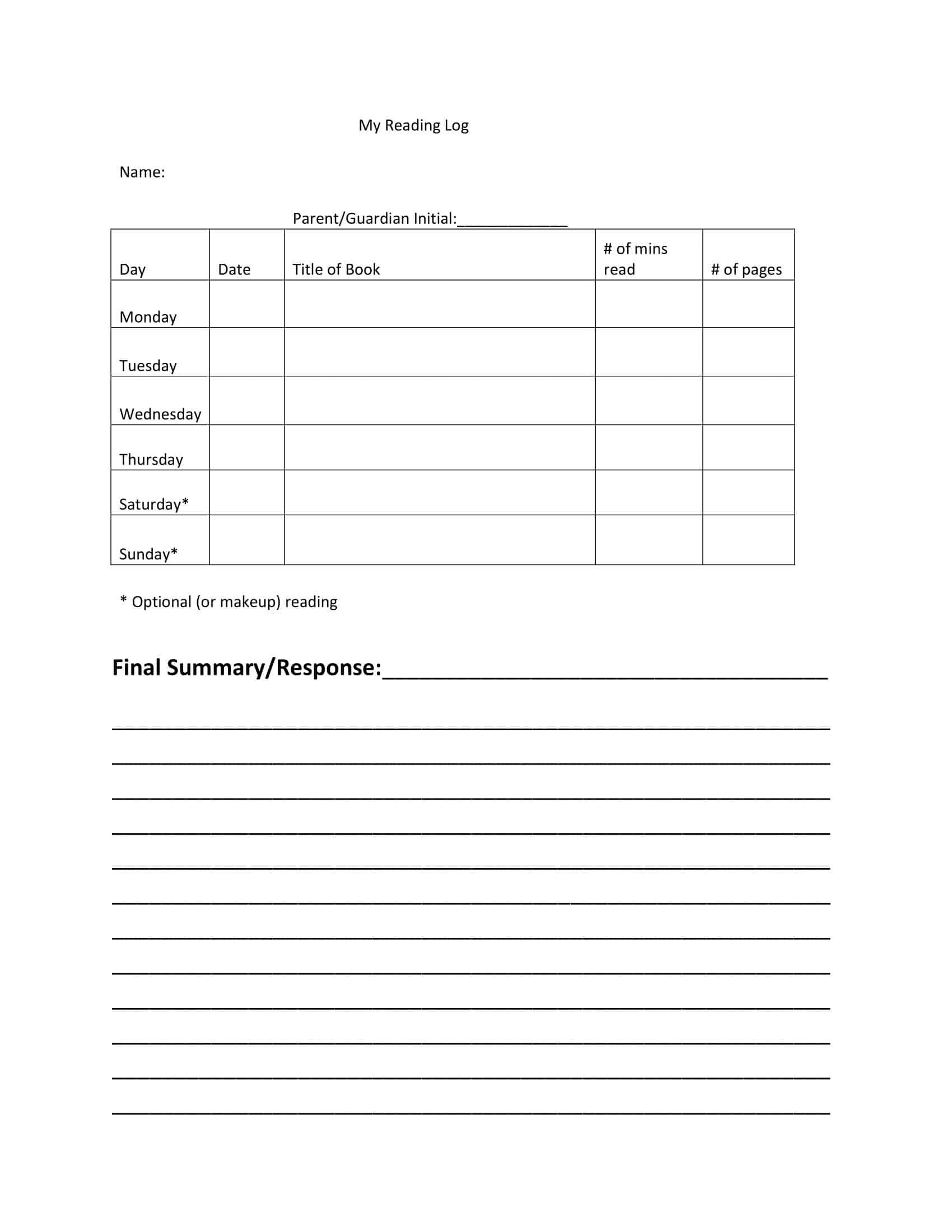





















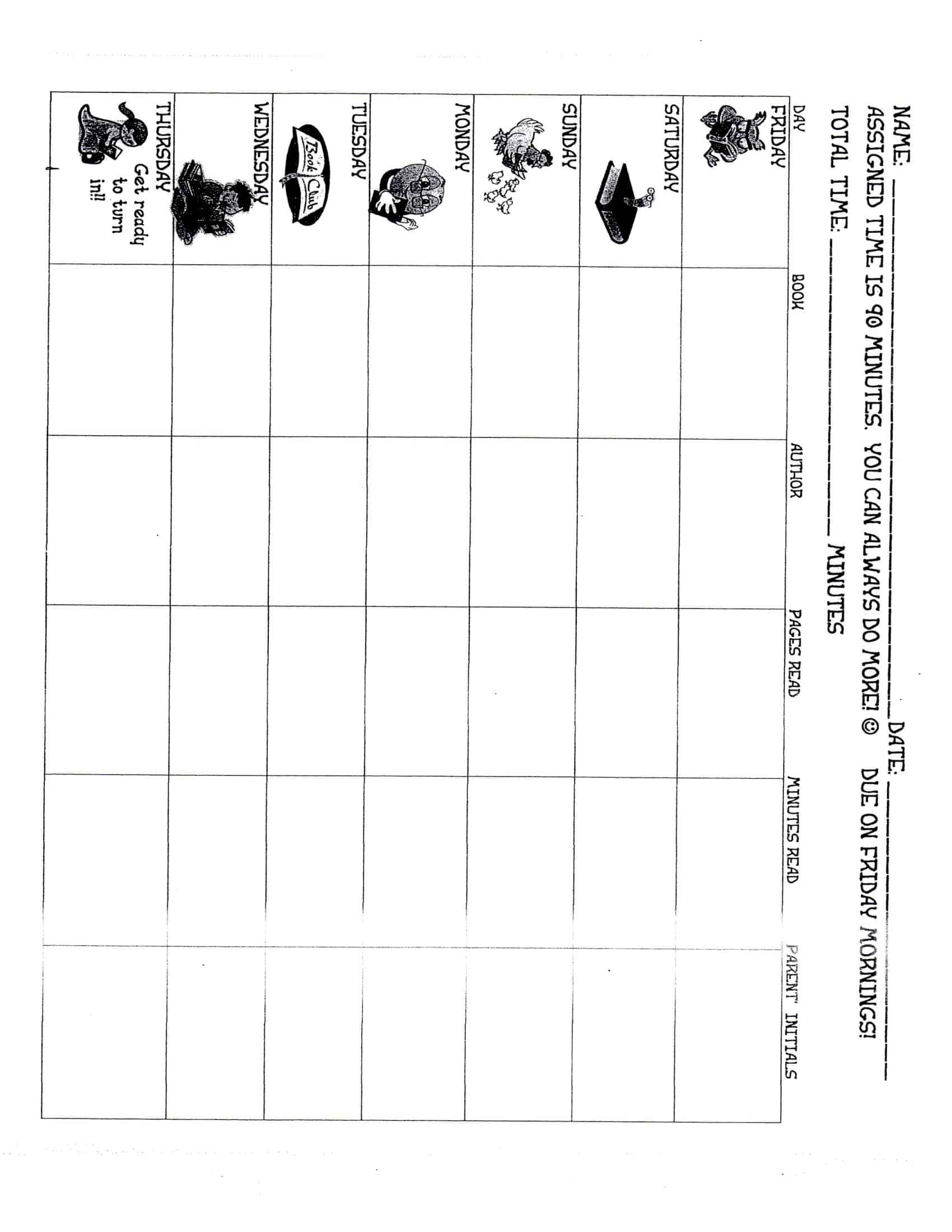





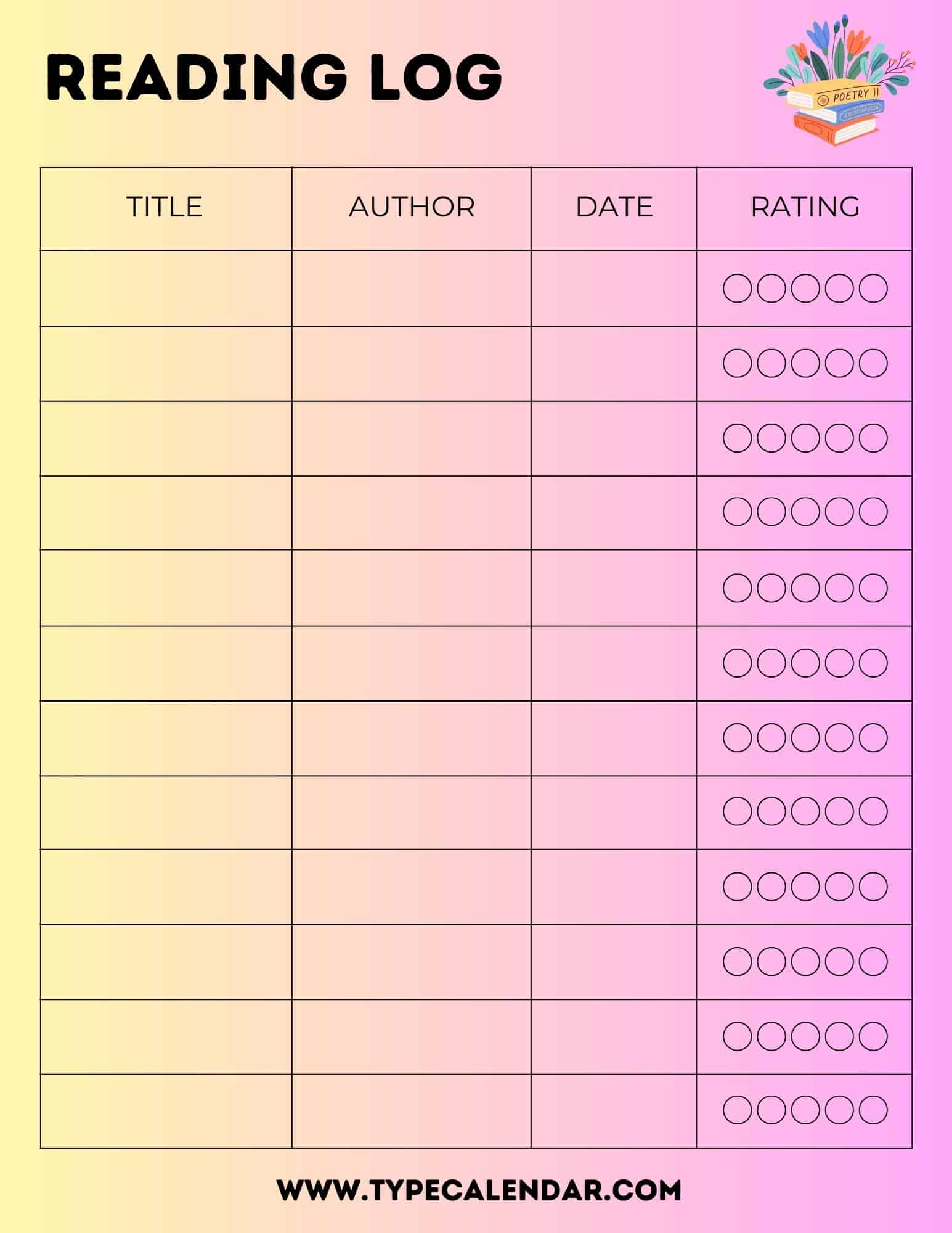







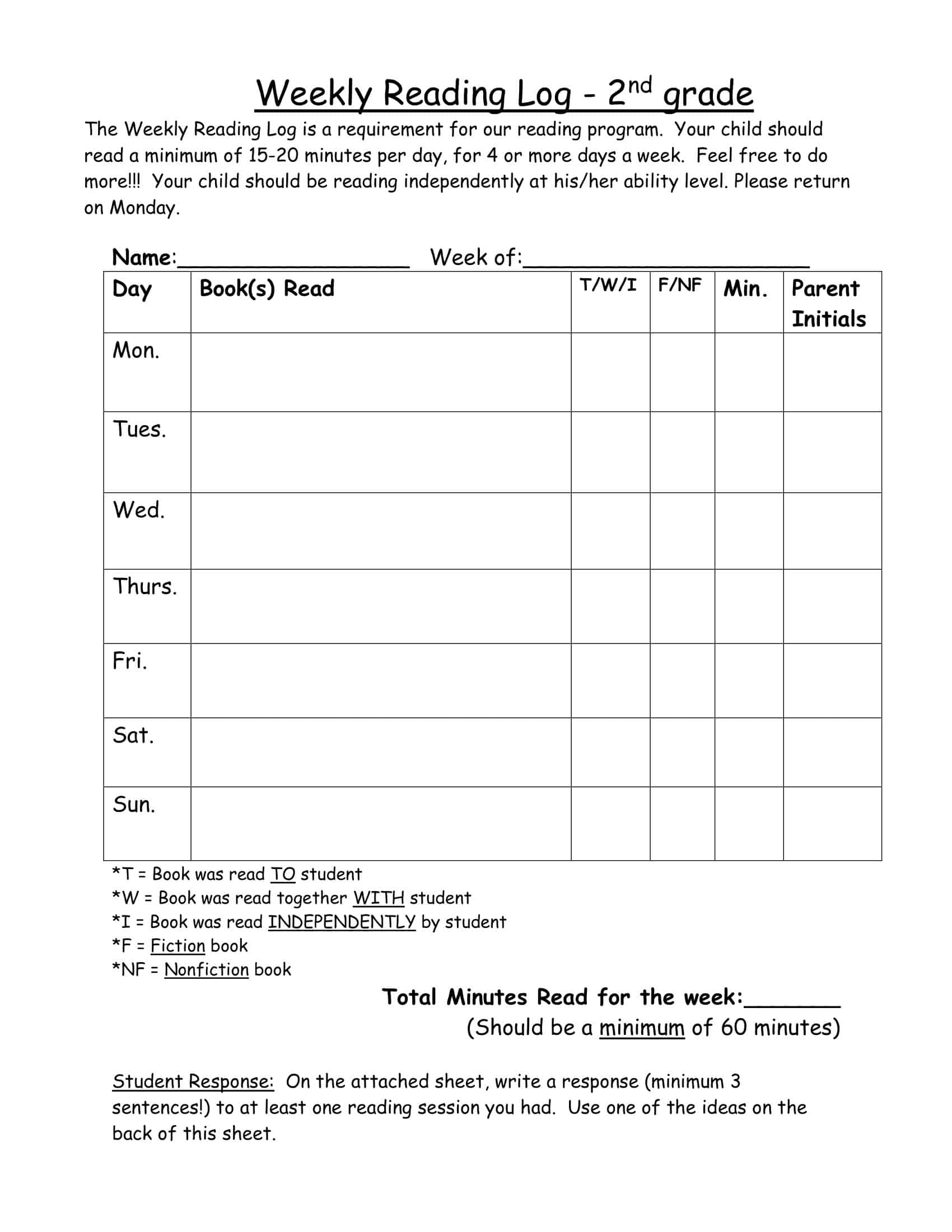




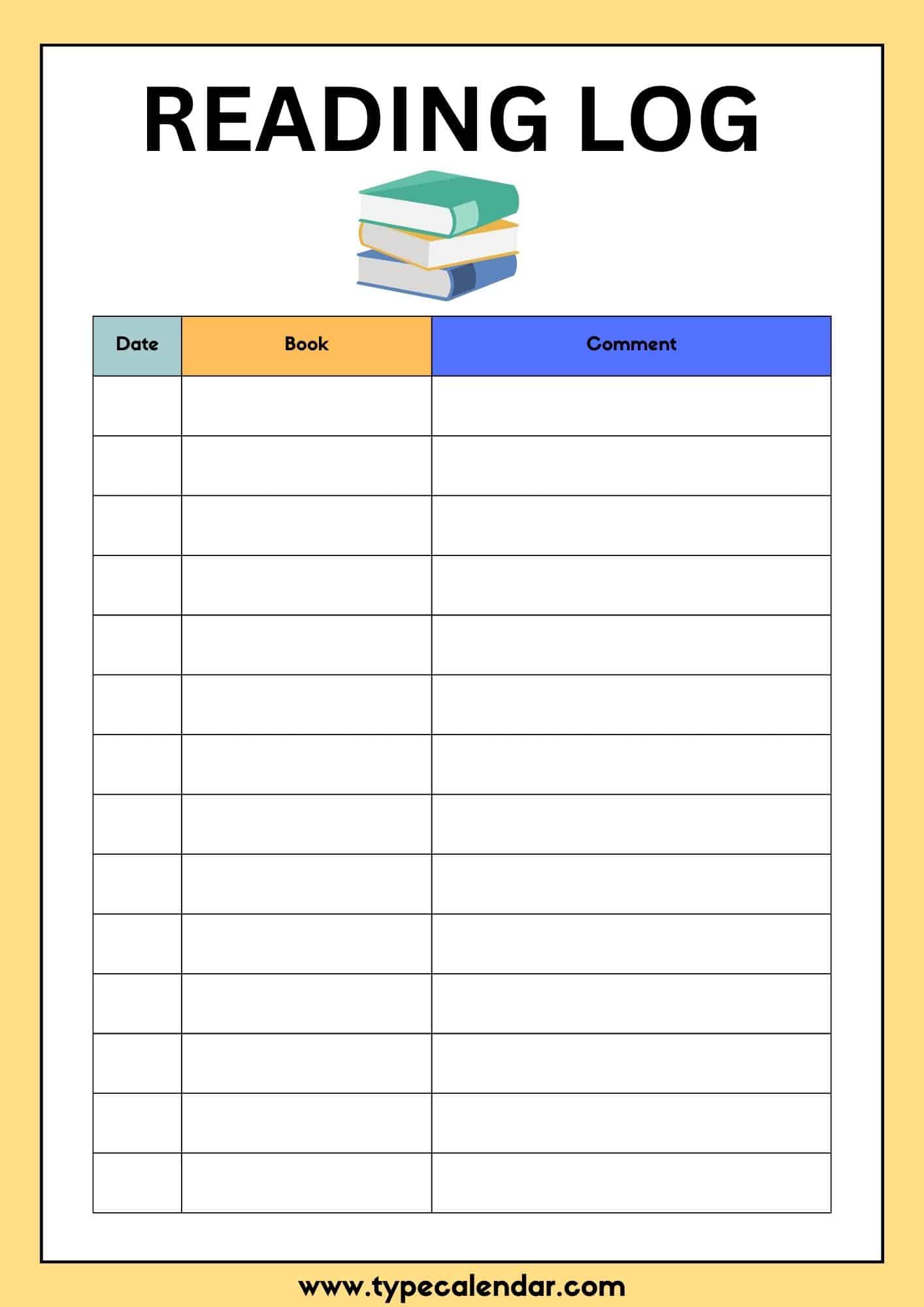


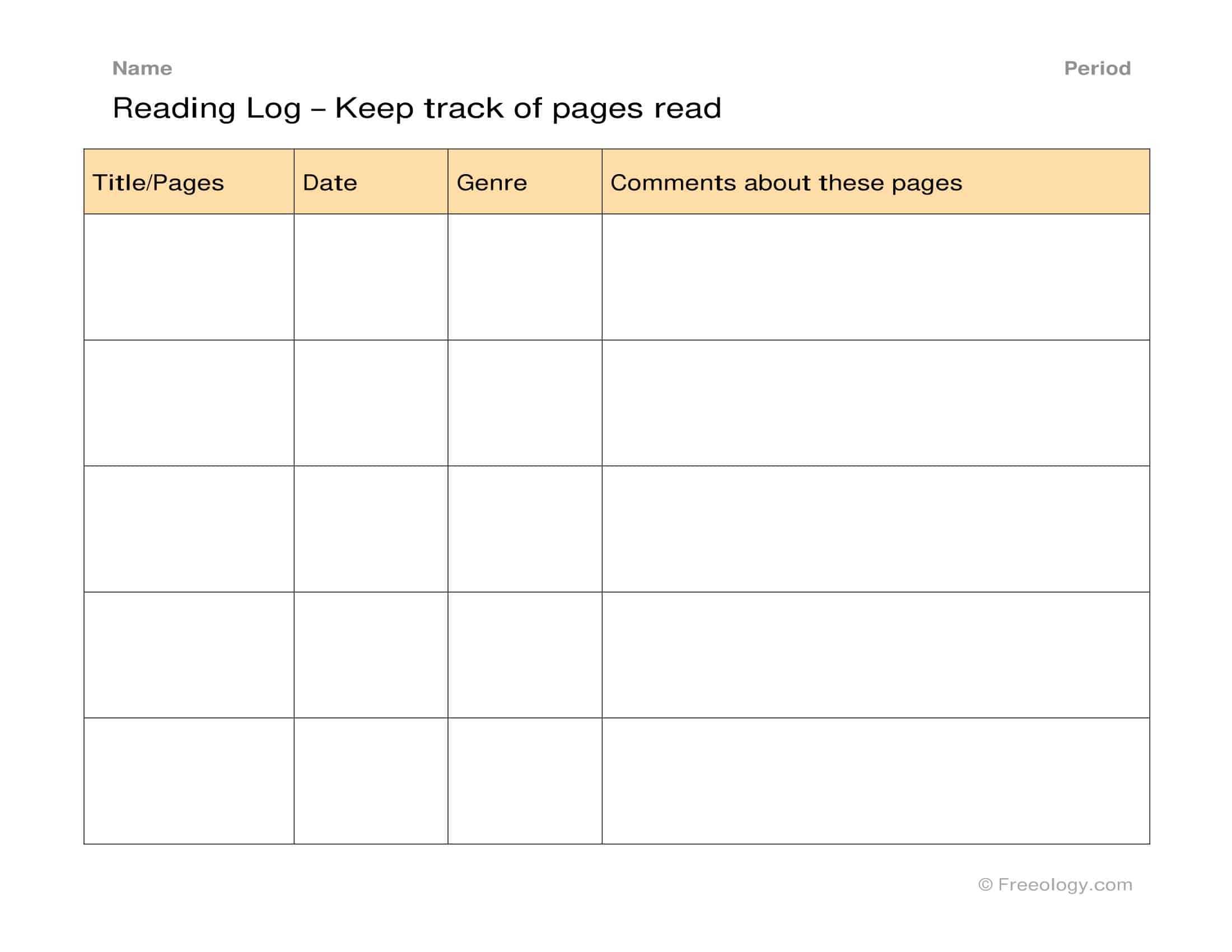


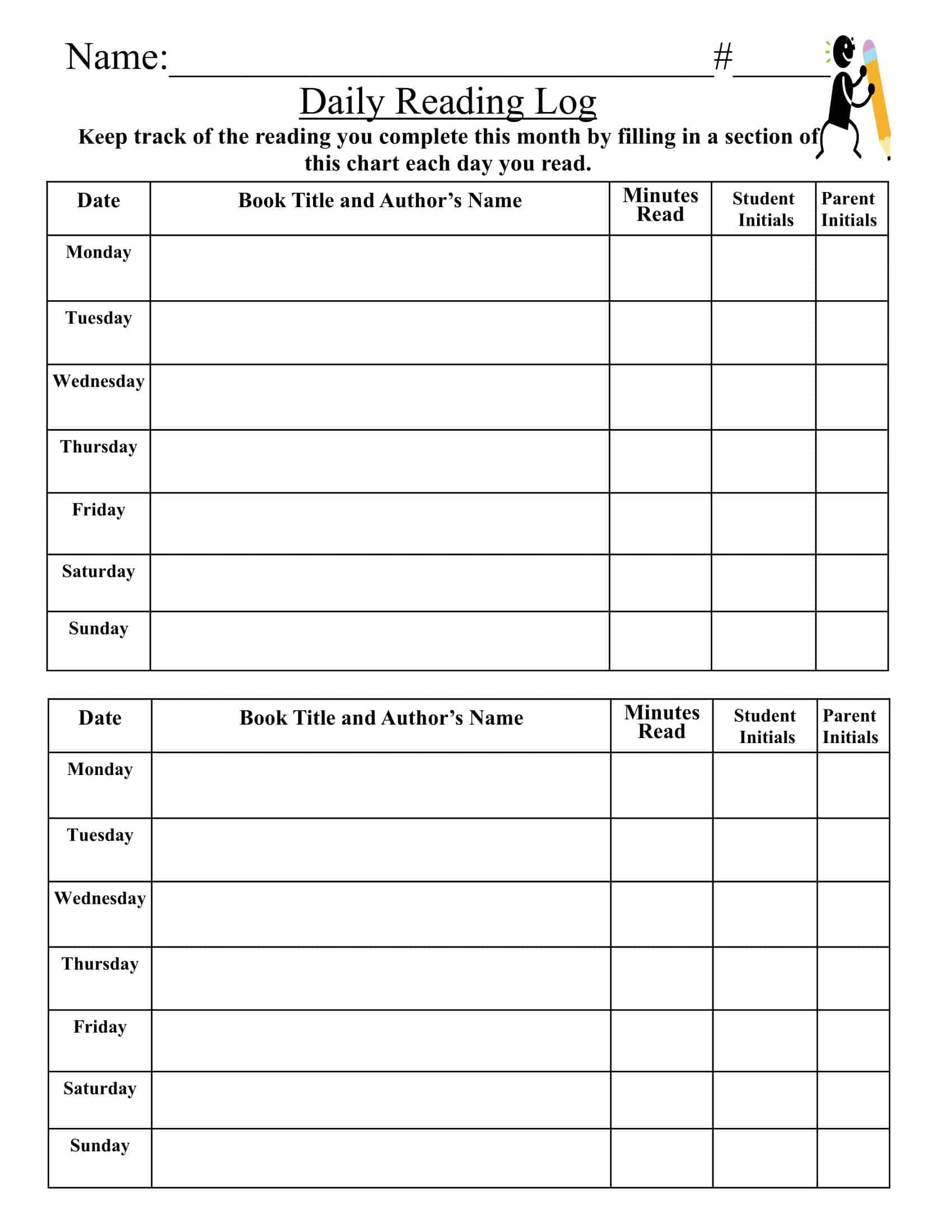
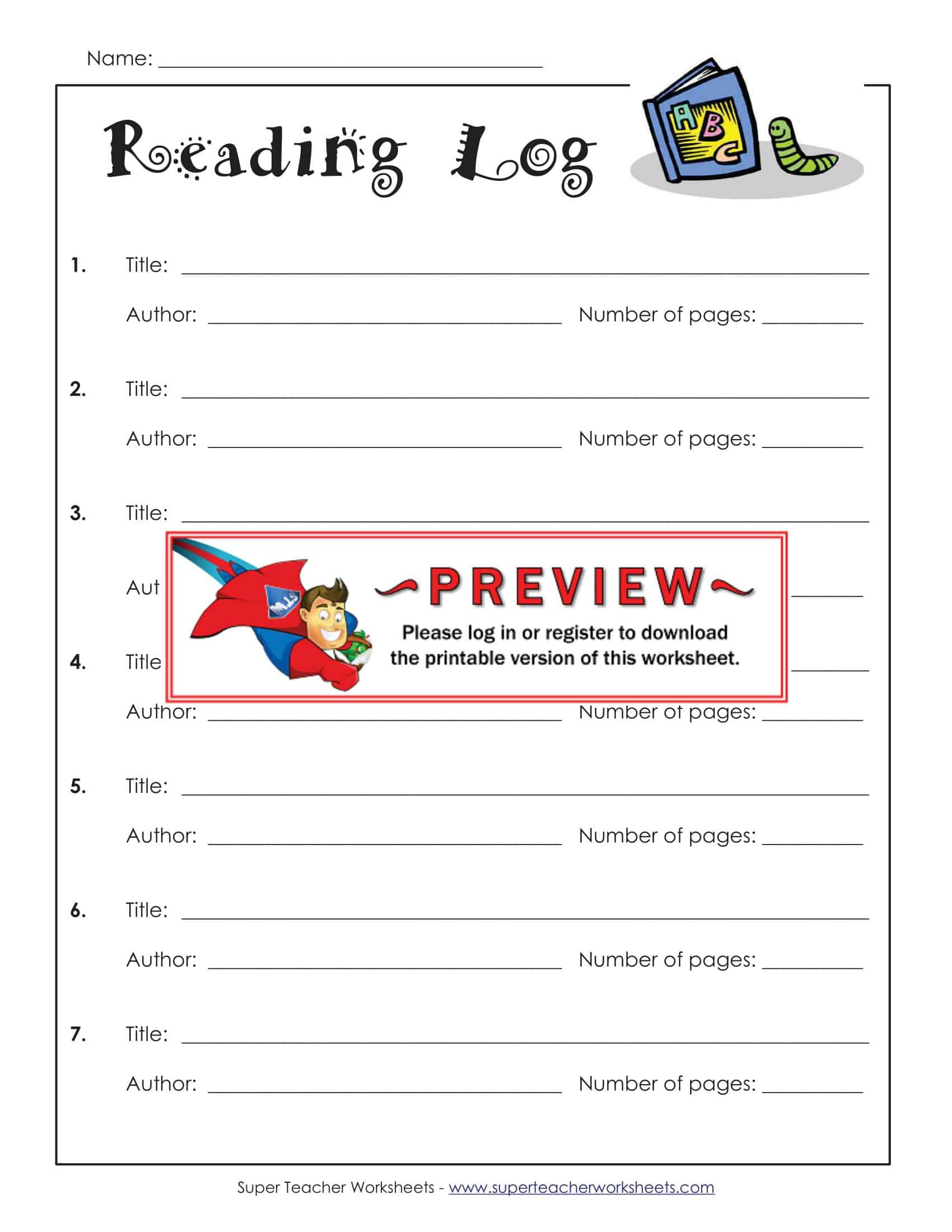
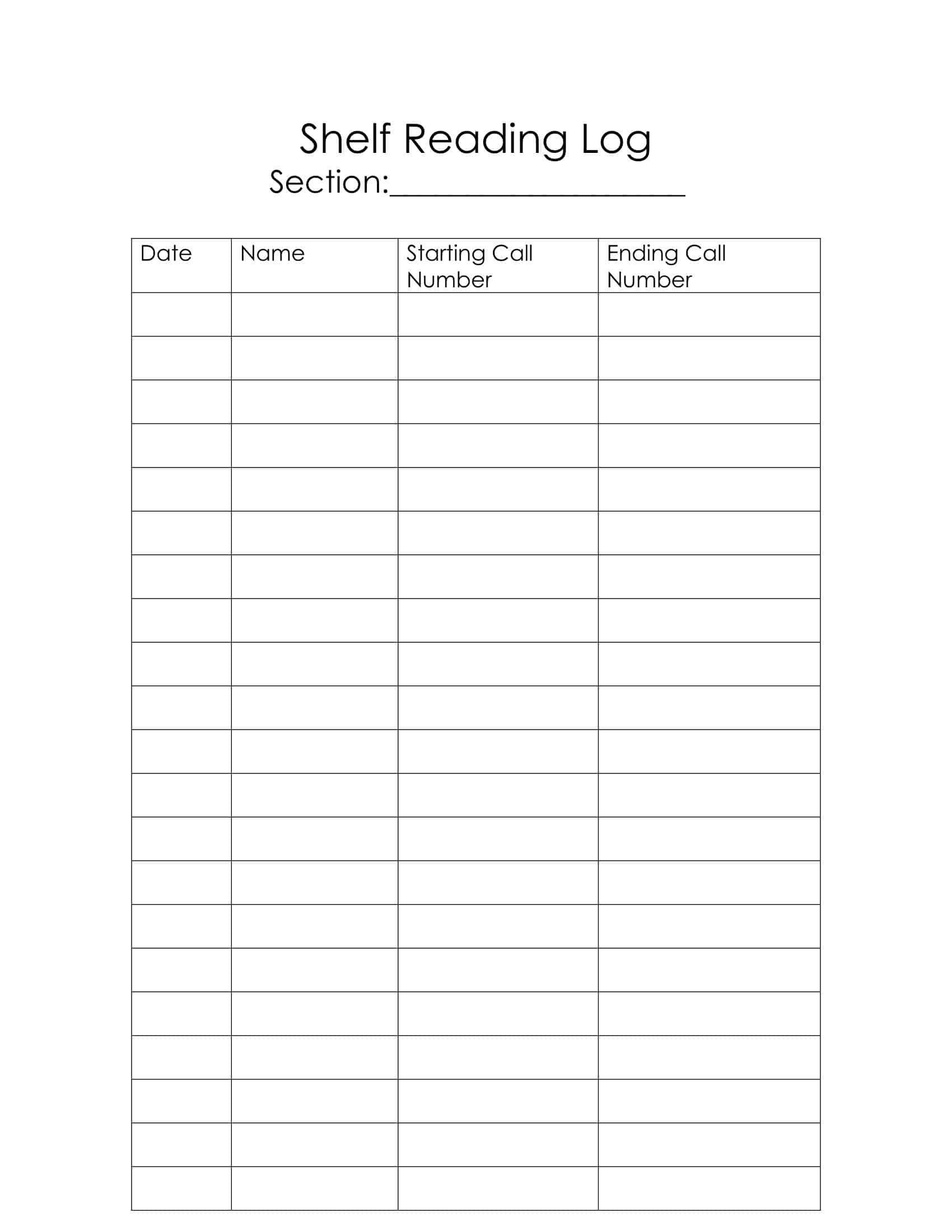

![Free Printable Roommate Agreement Templates [Word, PDF] 1 Roommate Agreement](https://www.typecalendar.com/wp-content/uploads/2023/06/Roommate-Agreement-150x150.jpg)
![Free Printable Credit Card Authorization Form Templates [PDF, Word, Excel] 2 Credit Card Authorization Form](https://www.typecalendar.com/wp-content/uploads/2023/06/Credit-Card-Authorization-Form-150x150.jpg)
![Free Printable Stock Ledger Templates [Excel,PDF, Word] 3 Stock Ledger](https://www.typecalendar.com/wp-content/uploads/2023/08/Stock-Ledger-150x150.jpg)

There are several alternatives to a reading log that you could use to keep track of your reading and reflect on your progress,